The correct past tense of cost is cost in most situations. Since cost is an irregular verb, it does not take “-ed” in the past tense like regular verbs do. For example, we say, “This bag cost $50 yesterday,” not “This bag costed $50 yesterday.”
However, costed is a real word and is used in specific cases. It appears in financial terminology, cost estimation, and price evaluation. When discussing cost analysis, people use costed to refer to the process of calculating expenses.
Why Is There Confusion?
The confusion also arises from similar-sounding words that do take “-ed” in past tense. For instance, words like “trust” become “trusted,” and “adjust” turns into “adjusted.” Since these words sound somewhat similar to cost, some speakers wrongly apply the same pattern. Additionally, English has many grammar exceptions, which make learning the correct verb conjugation challenging.
Because of these patterns, non-native speakers and even some native speakers struggle with cost vs costed in sentences. Many English learners assume that all verbs follow standard verb conjugation rules in the past tense. In most cases, regular verbs simply add “-ed” to form their past tense.
For example, “walk” changes to “walked,” and “jump” turns into “jumped.” Because of this pattern, many people mistakenly believe that cost should become costed in the past tense. However, cost is an irregular verb, which means it does not follow this typical rule. Instead, the correct past tense remains cost, making it an exception in English grammar rules.
Explore These What’s the Past Tense of Cost: Is It Cost or Costed?
What Does “Cost” Mean?
The word cost has multiple meanings in different contexts. It can be a verb or a noun.
As a verb, it means “to require a payment or sacrifice.”
- Example: “This car costs $30,000.”
As a noun, it refers to the price evaluation or amount of money needed for something.
- Example: “The cost of living is rising.”
When used in past tense, the verb form remains the same. “This phone cost $800 last year.”
What Does “Cost” Mean?
The past tense of cost is always cost, not costed, in everyday usage. Since cost is an irregular verb, it does not change when referring to past events. Unlike regular verbs that add “-ed” in the past tense, cost remains the same whether talking about the present or the past.
This is similar to other irregular verbs like “put” and “cut,” which also do not change in past tense. Using costed in general sentences is incorrect, as it is only used in cost analysis and expense calculation within financial terminology.
For example:
- “The dress cost $50 last week.”
- “His mistake cost him a great opportunity.”
- “The repairs cost more than expected.”
When “Costed” Might Be Appropriate
The word costed is only appropriate in specific contexts, mainly in financial terminology, cost estimation, and project budgeting. Unlike the usual past tense of cost, which remains cost, the term costed is used when referring to the process of calculating or evaluating expenses.
This is common in cost analysis within accounting language and expense calculation. If someone is actively determining or assessing costs, costed becomes the correct choice. However, in general past-tense usage, the correct form remains cost.
Key tip
Use costed when discussing a deliberate action of analyzing expenses, such as in business planning or financial reporting.
For example,
professionals might say, “The team carefully costed the project before approval” or “The budget was thoroughly costed before finalizing the pricing model.” This form is particularly useful in costing methods, where companies need to estimate expenses before making decisions.
Referring to Cost Analysis or Estimation
In accounting language and cost estimation, costed means “to calculate the cost of something.”
For example:
- “The finance team costed the entire project before approval.”
- “The government costed the new tax policy carefully.”
Emphasizing a Deliberate Action
When discussing a planned evaluation of expenses, costed is correct.
For example:
- “We costed out every item before launching the product.”
- “The team costed the raw materials for the new building.”
Usage in Professional Jargon
In professional jargon, the word costed is commonly used in financial terminology, accounting language, and project budgeting. Unlike the standard past tense of cost, which remains cost, professionals in industries such as finance, business planning, and expense calculation use costed when referring to a detailed evaluation of expenses.
This applies to situations where costs are being analyzed, calculated, or estimated. For example, in cost analysis, a financial report might state, “The production expenses were carefully costed before finalizing the budget.”This specialized use of costed appears in costing methods and price evaluation within corporate finance, manufacturing, and economic planning.
Verb Tenses for “Cost”
| Tense | Form | Example Sentence |
| Base Form | cost | How much does this item cost? |
| Simple Past (General Use) | cost | The laptop cost $1,000 last year. |
| Simple Past (Technical Use) | costed | The finance team costed the entire project before approval. |
| Past Participle (General Use) | cost | His poor decision has cost him a promotion. |
| Past Participle (Professional Use) | costed | The company has costed different pricing models for next year. |
| Present Participle | costing | The organization is currently costing the new budget plan. |
| 3rd Person Singular Present | costs | This subscription costs more than expected. |
Key Notes:
- Cost remains the same in past tense and past participle for everyday use.
- Costed is only correct in financial terminology, cost estimation, and expense calculation.
- Costing is used in the present continuous tense to refer to an ongoing cost analysis process.
Read more About What’s the Past Tense of Cost: Is It Cost or Costed?
“Cost” and “Costed” in Sentences
Examples of cost
- This meal cost me $20 at the restaurant.
- That mistake cost him his reputation in the business world.
- The new policy cost the company millions in lost revenue.
- Her medical treatment cost a fortune last year.
- The unexpected repair cost me an extra $500.
- His poor decision cost the team their chance at winning the championship.
- The accident cost the driver thousands in legal fees.
- Their lavish wedding cost more than they originally planned.
- The global economic crisis cost many businesses their stability.
- Missing the deadline cost the company a major client.
Examples of costed
- The team costed the budget for next year before presenting it to management.
- We costed different pricing models before making a final decision.
- The government costed healthcare reforms carefully to assess financial impact.
- The company costed the new manufacturing process to determine profitability.
- The finance department costed the project expenses before seeking investor approval.
- Engineers costed the raw materials to ensure the best price for production.
- The accountants costed every expense before finalizing the annual report.
- The consultant costed multiple business strategies for cost-effectiveness.
- The construction team costed the entire building plan before starting the work.
- The marketing agency costed various advertising campaigns to find the most affordable option.
Synonyms for “Cost” and “Costed”
Synonyms for “Cost” (General Use)
- Price – What is the price of this item?
- Expense – The expense of traveling abroad has increased.
- Charge – The hotel added an extra charge for room service.
- Value – The value of this painting has doubled over the years.
- Fee – The membership fee is due at the beginning of each month.
- Rate – The taxi rate varies depending on the distance traveled.
- Worth – This vintage car has great worth to collectors.
- Toll – The financial toll of the crisis was devastating.
- Expenditure – The company reduced its expenditure to save costs.
- Payment – A payment of $100 is required to confirm your booking.
Synonyms for “Costed” (Specialized Use)
- Estimated – The accountant estimated the total cost of the project.
- Evaluated – The finance team evaluated different budget scenarios before approval.
- Assessed – The company assessed the expenses before launching the new product.
- Priced – The vendor priced each item based on the latest market rates.
- Calculated – The engineers calculated the total material cost for the construction project.
- Projected – The marketing department projected the advertising costs for the next quarter.
- Cost-analyzed – The financial team cost-analyzed the production expenses to maximize savings.
- Budgeted – The organization budgeted for all expected costs before the fiscal year began.
- Appraised – The experts appraised the costs associated with the new investment.
- Accounted for – The project manager accounted for all overhead costs in the final report.
Etymology of “Cost”
The word cost has its origins in Latin, coming from the term constant, which means “to stand at a price” or “to be fixed.” Over time, this word evolved through Old French as coster, meaning “to cost” or “to be worth.” By the Middle English period, the word became cost, keeping its meaning related to price evaluation and expense calculation.
This historical development explains why cost remained an irregular verb, unlike most English words that follow regular verb conjugation patterns. Throughout history, cost has been used in both financial and everyday contexts, from discussing project budgeting to defining the value of goods. The reason English retained cost as an irregular verb is due to its strong linguistic roots and unchanged usage over centuries.
FAQ” S
What is the past tense of cost?
The past tense of cost is cost, not costed, except in special cases.
When can I use “costed”?
You can use costed in cost analysis, project budgeting, and financial terminology.
Why do some people say “costed”?
People mistakenly use costed because they assume all verbs take “-ed” in past tense.
Is “cost” always irregular?
Yes, in everyday usage, cost is always irregular and does not change in past tense.
Can I say “costed” in daily conversation?
No, costed is used mainly in accounting language and expense calculation.
Conclusion
The past tense of cost is cost or costed, depending on the context. In everyday language, cost remains unchanged in the past tense, as it is an irregular verb. For example, “The jacket cost $50 last week” is correct. However, in professional settings like cost analysis, financial terminology, and project budgeting, costed is appropriate when referring to the process of expense calculation. Understanding cost vs costed helps avoid grammar mistakes and ensures correct usage in both casual speech and accounting language. Always use cost in general past tense situations.

Mason Blake is an experienced blogger with a passion for language and communication. With years of expertise in crafting informative and engaging content, Mason shares valuable insights on grammar and writing. His clear, concise, and reader-friendly approach has earned him a loyal following, helping readers sharpen their language skills and master the art of effective communication.

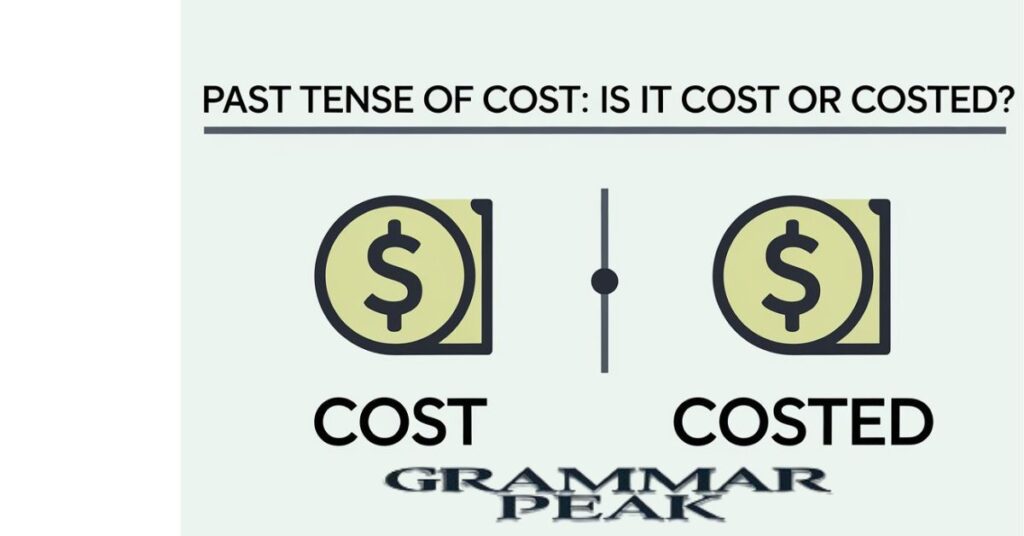

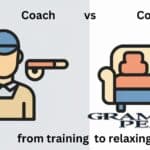
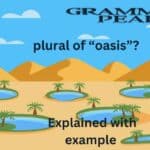
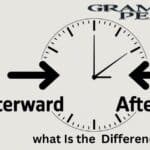

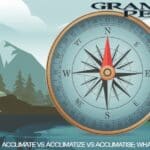
What a material of un-ambiguity and preserveness of precious familiarity concerning unpredicted
feelings.
My website – NBA Game tickets